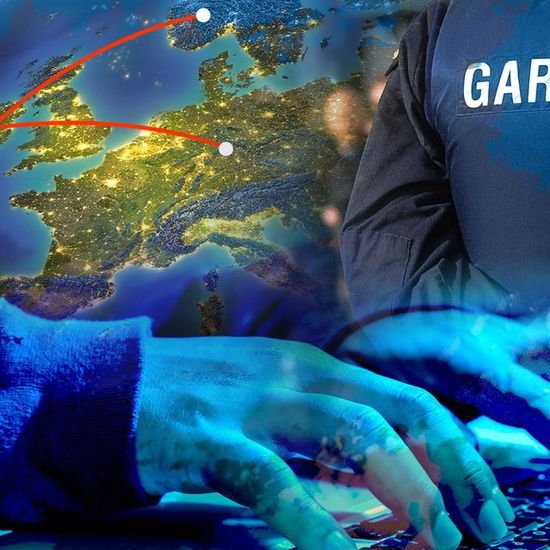Of the nine arrested, two are currently before the courts charged with various alleged offences. Gardaí attached to the Waterford Division Crime Hub have been conducting what has been described as a “complex criminal investigation” that has resulted in the seizure of €1.12 million in cryptocurrency. Another €30,000 in other money has been frozen while vehicles including a VW Golf and a Mercedes have also been seized. The investigation has also identified organised criminal connections across Europe, the UK, Dubai and South Africa as well as a property in Dubai. The investigation has been focusing on organised transnational criminal activity involving the bulk transmission of smishing texts, theft, deception and money laundering, both nationally and internationally. The criminal offence of ‘smishing’ involves fraudulent SMS and WhatsApp messages claiming to be from national postal offices, delivery companies and financial institutions. “Investigating gardaí have currently seized currency, vehicles and property believed to be the proceeds of the organised criminality,” the Garda Press office said in a statement. “The seizure of cryptocurrency, in October and November 2023 as part of the investigation, is the first major seizure of cryptocurrency, now in excess of €1.12 million in the area of Organised Cyber Enabled frauds by An Garda Síochána.” The investigation is being coordinated by the Waterford Crime Office with the assistance of GNECB (Virtual Assets Investigation Unit and FIU Ireland), GNCCB, Europol, Garda Passenger Information Unit (GPIU) and other Garda Divisions. Today’s News in 90 seconds – November 21st Europol and Garda Liaisons in Irish embassies are facilitating the investigation team alongside other police forces to progress this investigation internationally, gardaí said. “The investigation to date has established that the criminal activity is operating in a number of countries in Europe, the UK, Dubai and South Africa,” they added. “The investigation is also conducting enquires into persons of varying nationalities, multi-linguistic, fluent in a number of languages to deceive their victims both nationally and internationally.” During a fraud briefing on Account Take Over last week, gardaí reminded people to always be suspicious of texts and calls asking for any personal data or money. Sophisticated fraudsters use texts, calls and emails to trick members of the public into giving away their personal data, enabling them to take over bank account or devices or debit and credit card details. Account takeover fraud occurs when an individual receives a text (smishing), call (vishing) or email (phishing) from a fraudster that appears to be from a bank, service provider, delivery company or government agency. If it’s a text (smishing), usually the fraudsters get the individual to click on a link and insert their PIN. This could be followed up with a call from the fraudster pretending to be from their bank. The result is the fraudster takes over their account or adds beneficiaries, such as money mules and makes online transfers. Alternatively, they may get the person to pay a small amount such as a customs charge with their card details and use these to make other purchases online. “If it’s a call (vishing), the fraudster may phone the person to tell them that they are ‘under investigation’ for tax fraud and that they can resolve the matter by paying their bill immediately,” gardaí said. “They may ask for their bank account details, credit card details or PPS number. They may also encourage them to download software, such as AnyDesk, so they can take over their computer.” As part of the awareness campaign, gardaí are urging people to be wary of texts, even those in the thread of previous genuine texts from banks, and especially if you are expecting a delivery. Also, in relation to cold calls, you should always ask the caller their name and for their phone number. If you have any concerns just hang up and ring your bank or service provider using the number on your bill or statement. The advice remains that just because it looks like an Irish number doesn’t mean it is. Also, don’t download any apps that give fraudsters control of your device and never click on links. You should never give away your personal data, for example bank details, PIN numbers, passwords, one-time codes, PPS number and Eircode. Gardaí advise that if you have been a victim, you should change your passwords/PIN codes, and report it to your bank as soon as possible and ask them to do a recall, and then report the matter to them.



